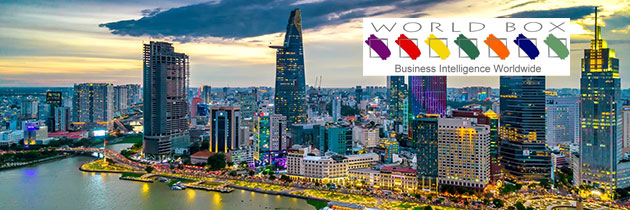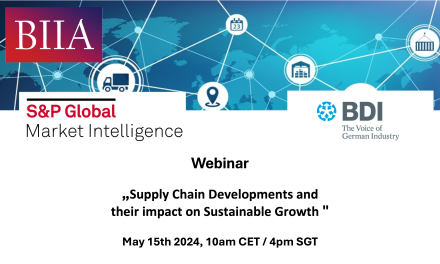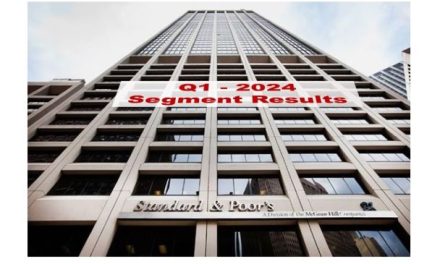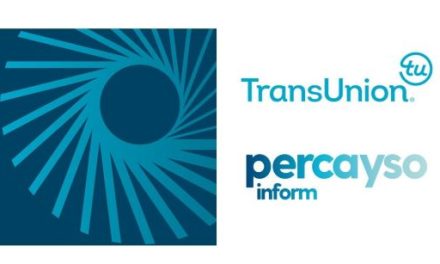Worldbox Country Risk Climate October 2023
Vietnam
Summary
| Overall Risk Score 23 (Stable)
Political risk: Stable 8/10 Economic risk: Stable 8/10 Commercial risk: Stable 7/10 The risk assessment of a country is made up of 3 components, being Political, Economic and Commercial. Each component is scored out of 10 with 1 being the highest risk and 10 the lowest. |
ESG Risk: 6/10 (Stable)*
*Environmental, social and governance (ESG) issues are becoming increasingly important to companies, investors and consumers in Southeast Asia. That is why we are now preparing a separate ESG score and section with our quarterly country risk reports. We explain how each country rates, looking at the E, S and G individually, and outline recent developments. |
Political Risk – Stable at 8
There are no obvious threats to the continued rule of the Communist Party. However, the country has been subject to significant political infighting over the past few years. A crackdown on corruption has contributed to the problem by paralysing policymaking. Some analysts believe the anti-graft campaign has also simply been used to eliminate political opponents of Nguyen Phu Trong Trong who was re-elected to the powerful position of general-secretary of the Communist Party in January 2021, at the age of 76, for a rare third five-year term.
Since taking office in 2011, Trong has built up a strong power base in the Communist Party. In January 2023, the corruption campaign claimed its biggest prize to date when President Nguyen Xuan Phuc resigned (or more probably was forced from office).
Vo Van Thuong, a close ally of Trong, took over as the country’s president. Some analysts believe the promotion of the relatively youthful Thuong – he is 52 – means he is being positioned to eventually take over as the country’s de facto leader by Trong.
The anti-corruption drive has also snared several prominent Vietnamese property developers, all of whom have political connections to rivals of Trong. This clearly poses a risk for foreign businesses operating in the country, if their in-country partners are also caught in the anti-graft drive. There is certainly no sign of the campaign letting up in 2023, while in 2022 some 4,600 government officials and business executives were investigated for suspected corruption and abuse of power.
Economic Risk – Stable at 8
The country’s economic model has been built on attracting foreign investment to drive the transformation from agriculture to a modern economy based on manufacturing. Strong foreign investment and current-account surpluses have strengthened the external position.
Vietnam experienced a strong post-pandemic economic recovery in 2022, according to the IMF’s June 2023 Article IV report. GDP rose by a historically high 8%, driven by strong domestic and external demand. Average inflation was contained at 3.2%, although price pressures picked up steadily during the year.
However, the IMF notes that:
“The recovery was interrupted by strong external and domestic headwinds. Exchange rate pressures mounted throughout 2022 as global interest rates rose sharply. A major domestic bank suffered a deposit run and was placed under SBV’s control. Financial stress among real estate developers, especially those highly leveraged, emerged and the corporate bond market froze. The economy was further hit by a sharp deterioration in external demand since late 2022, with exports declining by 12 percent in the first five months of 2023. Liquidity and inflationary pressures have eased recently, but growth slowed down significantly in the first half of 2023.”
Vietnam has increasingly opened itself to global trade. Trade has almost quadrupled over the past decade and is now more than twice the size of the economy. The IMF argues that more decisive reforms are needed to make the most of Vietnam’s considerable growth potential. In its 2022 Article IV consultation, the organisation argued that:
“Decisive structural reforms are needed to meet the authorities’ aspirations of sustained, inclusive growth. The business climate should be improved by creating a level playing field for finance and land access, and reducing the regulatory burden, especially on SMEs and young firms. Further efforts are needed to improve the quality of the labour force and reduce skill mismatches. Policies should be mindful of their implications on income and wealth inequality, as cross-country experience suggests that rising inequality lowers growth. Efforts to improve governance and reduce data gaps must continue as Vietnam looks to advance to emerging economy standards.”
Vietnam should remain one of the fastest-growing economies in the Asia-Pacific region, benefiting from a large and skilled labour force and still relatively low wage costs. The country is the main low-cost regional alternative to China for export-oriented manufacturing. It has benefited from Sino–US tensions and rising wages in China: many companies have shifted export manufacturing – especially in ready-made garments, and increasingly in consumer goods and IT products – from China to Vietnam. The country has also gained from the trend to move production away from China because of coronavirus-related supply-chain disruptions.
Commercial Risk – Stable at 7
Vietnam ranks 70th out of 190 countries in the World Bank’s Ease of Doing Business index, having moved up from 90th place in 2010. It remains well below other Southeast Asian economies such as Malaysia and Indonesia. The country ranks lowest in terms of starting a business, paying taxes, trading across borders and resolving insolvency. It takes businesses 384 hours to pay taxes in Vietnam, compared with 64 hours in Singapore, 174 hours in Malaysia and 191 hours in Indonesia. The World Bank also found that the main challenge facing domestic businesses was gaining access to credit.
Corruption is a significant challenge. However, progress does seem to be being made. Vietnam ranked in 77th place out of 180 countries in Transparency International’s 2022 Corruption Perceptions Index, up from joint 104th in 2021. According to the Vietnam Corruption Report by GAN, corruption is pervasive in Vietnam’s business environment. It adds that companies are likely to experience bribery, political interference and facilitation payments in all sectors. However, land administration, the construction sector and public administration are especially prone to corruption, according to GAN.
The country ranks in 72nd place in terms of economic freedom, according to the Heritage Foundation’s 2023 Index. It has moved up 12 places since 2022. Vietnam is ranked 14th out of 39 countries in the Asia–Pacific region, and its overall score is above the world and regional averages.
The lack of adequate infrastructure provides significant challenges to operating in Vietnam. Just 20% of the country’s national roads are paved. The population growth in major cities in recent years has strained and exceeded the capacity of the existing infrastructure. Vietnam also lacks adequate infrastructure connecting roads with seaports, resulting in logistics costs being insufficiently competitive.
October Bulletin
Political Risk – Stable at 8
The government faces no significant threats to its rule. Former president Nguyen Phu Trong, who was re-elected to the post of general secretary of the Communist Party in January 2021, is the most powerful figure in the country. Trong is 78 and had health issues – although his health now appears to have improved. Even if Trong were to retire, Vietnam’s political stability would likely be unchanged, given the smooth transition of leadership that has taken place in Vietnam when previous leaders have stepped down. There is also broad support within the Communist Party for the current economic policies that have served Vietnam so well over the past few decades.
The government has solidified relations with the USA by signing a comprehensive strategic partnership, a symbolic yet highly important move that signals America’s intent to create an ally to counteract political tensions with China and advance its ambitions for key technologies, such as chipmaking. Last year, Vietnam became America’s eighth largest trading partner, rising from 10th place two years earlier.
In July 2023, the government suggested suspending internet access to individuals violating cyber security laws. Pressure would be placed on Internet service providers such as telecom firms and data centres to obey or defy this potential new ruling. According to news outlet, The Diplomat, the cabinet would advise providers to withdraw internet access for “organisations and individuals who commit violations online, especially through using livestream services on social media”. In the meantime, the government is constantly passing new cybersecurity laws to quash dissent.”
Economic Risk – Stable at 8
Vietnam’s GDP growth for the first half of 2023 registered just 3.72%, well below the government’s full-year target of 6-6.5%. In May, the IMF projected 2023 growth to slow to 5.8% from 8% last year as Vietnam copes with less overseas demand for its exports. Last year, gross export earnings – at US$372bn – equated to a staggering 90% of output.
Exports fell by 11.6% on an annual basis in the first five months of this year to $136.17 billion, as weakened external demand weighed on the manufacturing sector.
However, FDI remains buoyant, declining by just 4% in the first six months of the year from a year earlier. Given rising interest rates and slowing global growth that is a positive sign and confirms that foreign firms retain confidence in Vietnam’s prospects.
Inflation remains relatively subdued, the annual rate rising by 3.29% in the first half of 2023. The central bank is targeting 4% inflation for the year. Inflation is likely to continue to fall as the global economy slows this year.
In June, the central bank cut interest rates for the fourth time in 2023. The 50 basis points reduction left the refinance rate at 4.5%, the discount rate at 3.0% and the electronic interbank rate at 5.0%.
It is important to add a note on recent official economic figures. Nikkei Asia reported in June that scepticism about the statistics released by Vietnam’s central and local governments is spreading, “as gross domestic product and tourism figures show marked improvement despite poor business sentiment”.
The report added that:
“The country’s structural steel industry has been hit hard by plummeting demand from lack of investment and an economic slowdown. Production facilities have seen operating rates fall to about 30%, and steelmakers are in the red. In the capital Hanoi, new buildings that have been abandoned mid-construction are becoming a more common eyesore.”
Nikkei Asia also quoted a source at a Japanese trading house as saying, “business sentiment is worse than during the global financial crisis.”
Nikkei Asia cited official GDP figures for the second quarter showing the economy expanding by an annual 4.14%, surpassing 3.28% growth in the January to March period. The news agency quoted business sources as saying the figures seemed “odd”. Just before the government released the numbers, Standard Chartered forecast GDP growth of 1.5% for the April-June quarter.
Commercial Risk – Stable 7
In July 2023, the Fitch ratings agency said that the risk that the government may be burdened by debt in the property sector has eased as interest rates fall. Vietnam has stepped up measures to curb risks in the property sector, including tightening lending. Fitch said the country still faces risks given possible delays in policy implementation following the corruption crackdown while reserve buffers against potential future external shocks have weakened.
Property developers expanded aggressively before the coronavirus pandemic, tapping domestic banks and bond markets to fund growth. Real estate demand has stagnated while consumers delay purchases of new homes over doubts that struggling developers will complete existing projects. Many developers have gone bust, while international bonds issued by the largest property developers have plunged are trading at cents on the dollar following the introduction of new reporting requirements, tightened access to credit and the high-profile arrests of property tycoons on charges including bond market fraud.
The market turned last October when Ho Chi Minh City-based property tycoon Truong My Lan, chairwoman of the Van Thinh Phat Holding Group, was arrested on charges of bond market fraud. Her arrest sparked a run on the Saigon Commercial Bank (SCB), where Truong allegedly has a close lending relationship.
Environmental, Social and Governance – ESG Risk: 6/10 (Stable)
The United Nations’ Sustainable Development Goals (SDGs) are recognised as a beneficial framework for responsible investment. The Sustainable Development Report from Cambridge University Press assesses the progress of all 193 UN Member States on the SDGs. It provides a useful means of ranking Southeast Asian countries on their ESG progress.
Vietnam is ranked 55 out of 166 in the 2023 report with a score of 73.3.
Environment: According to the Intergovernmental Panel on Climate change, Vietnam is one of several countries most vulnerable to climate change. With 3,260 km of coastline, 2,860 rivers and 4,000 islands, Vietnam is dangerously exposed to flooding, typhoons, tsunamis and tropical storms. A recent catastrophe, ‘The 2020 Central Vietnam floods’ saw a death toll of 189 people and damage worth $1.57 billion. The floods were the result of seasonal monsoons and tropical cyclones.
Attempting to combat climate change, the Vietnamese Government has released plans to reach a net-zero emissions target by 2050. It hopes to increase the country’s renewable energy usage by 67.5%, and pledges to build no new coal-fired power stations post 2030. English-language newspaper, Viêt Nam News claims ‘Coal and gas thermal powers reach 42.7 per cent of energy provided, while turbines are 11.2 per cent and hydroelectric 27.4 per cent’, as of February 2023.
Social – The US State Department Human Rights report for 2022 outlines a number of human rights abuses. The Vietnamese government responded by saying the report contained “unobjective comments based on inaccurate information about the actual situation in Vietnam.”
In terms of worker’ rights, Vietnam adopted an amended Labour Code in January 2021. It is aimed at aligning labour rules with international labour standards assessed by the International Labour Organization.
Governance – Corporate governance is a relatively new concept in Vietnam. The government has taken important measures to improve its ownership and corporate governance frameworks for state-owned enterprises (SOEs), according to an OECD report published in 2022. SOEs account for one-third of GDP and dominate many of the sectors such as energy, transport, telecommunications and finance. The country’s SEC launched the Vietnam Corporate Governance Code of Best Practices in 2019 for the private sector. It draws upon the G20/OECD Principles of Corporate Governance, the 2017 ASEAN Corporate Governance Scorecard, as well as the most recent corporate governance codes of countries around the world.
October Bulletin
Environmental, Social and Governance Risk (ESG) – 6/10 (Outlook – stable)
More than 85% of the country’s 500 fastest-growing companies (FAST 500) have committed or plan to comply with ESG standards, according to a survey conducted by the Vietnam Report Company, VietNamnet reported in March 2023.
The report added that nearly 15% of the surveyed companies had initiated and implemented some of their ESG obligations, while 37% had fully planned and implemented their commitments. In addition, only 14.8% of companies had no ESG commitments or had yet to develop a concrete implementation plan, while 33.3% were in the planning stage.
Latest economic data

f forecasts
* State Bank of Vietnam
** Statista
*** Worldbox Intelligence
Source: International Monetary Fund, except where stated
Useful Links
https://www.transparency.org/en
https://www.imf.org/en/Countries/VNM
About Worldbox Business Intelligence
Worldbox Business Intelligence, headquartered in Switzerland, is a Global API data solution provider of business intelligence and used in data analytics.
With the Global API solution Worldbox Business Intelligence enables clients and partners also a frictionless real time onboarding, KYC and compliance verification while rapid global investigations are provided, if needed.
Worldbox Business Intelligence provides global data in a standardised structure to more than 200 Million companies worldwide. The global network of subsidiaries, branches and desks allows to precisely and efficiently collect data and target key territories for clients and partners.”
“Worldbox Business Intelligence – Bringing Swiss Precision To Data”
Copyright (C) 2023 Worldbox Business Intelligence. All rights reserved.
Our mailing address is:
Worldbox Business Intelligence
Breitackerstrasse 1
Zollikon
Zurich 8702
Switzerland





























